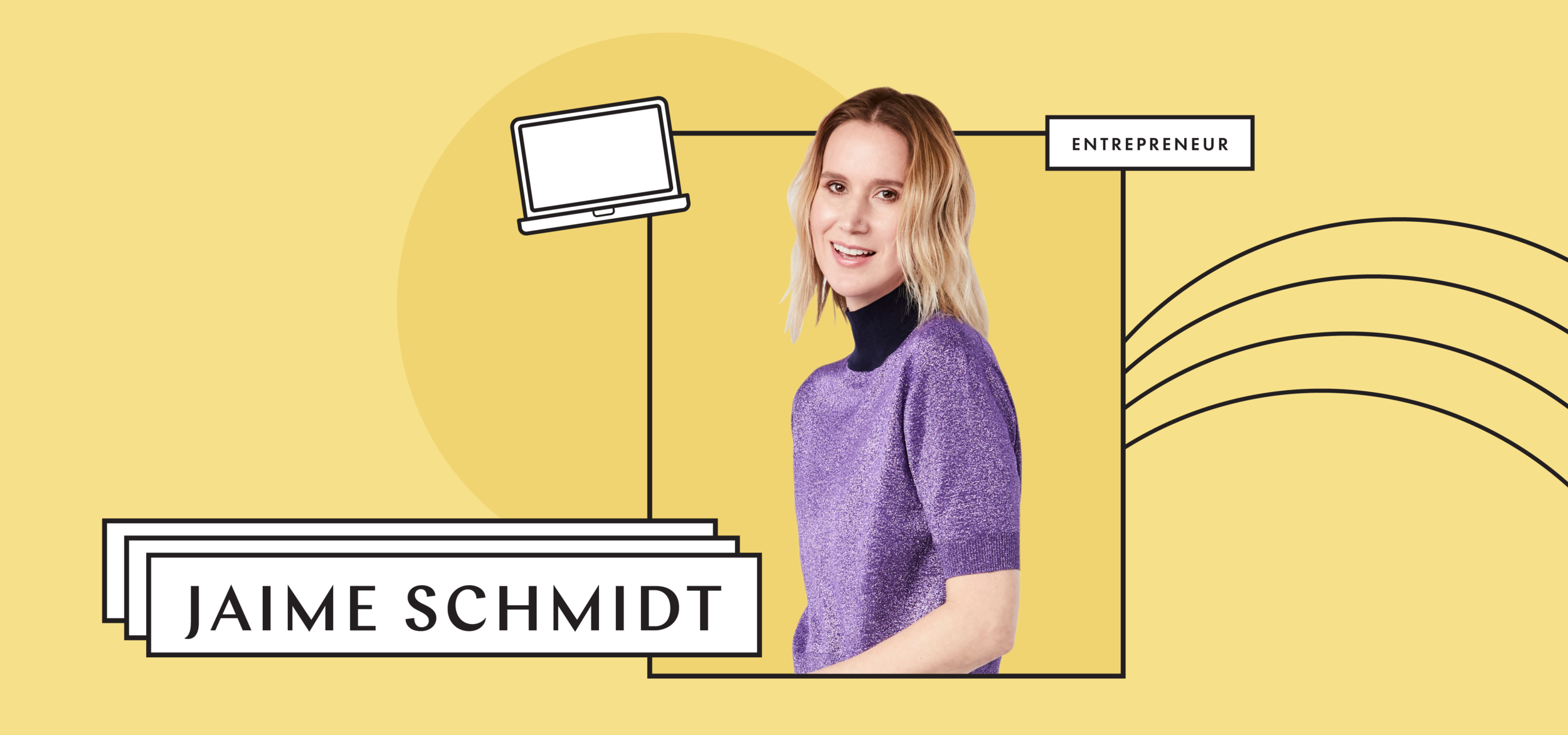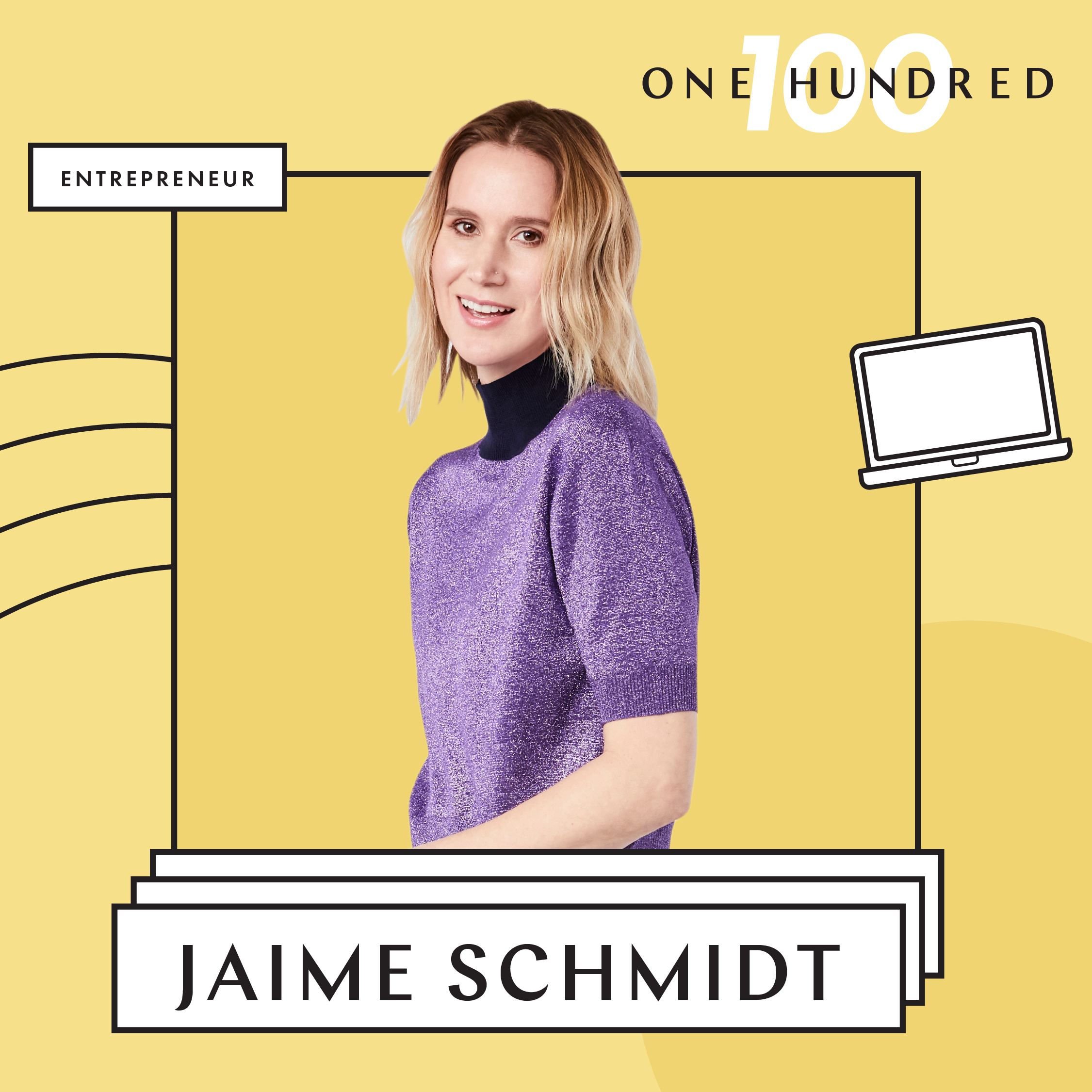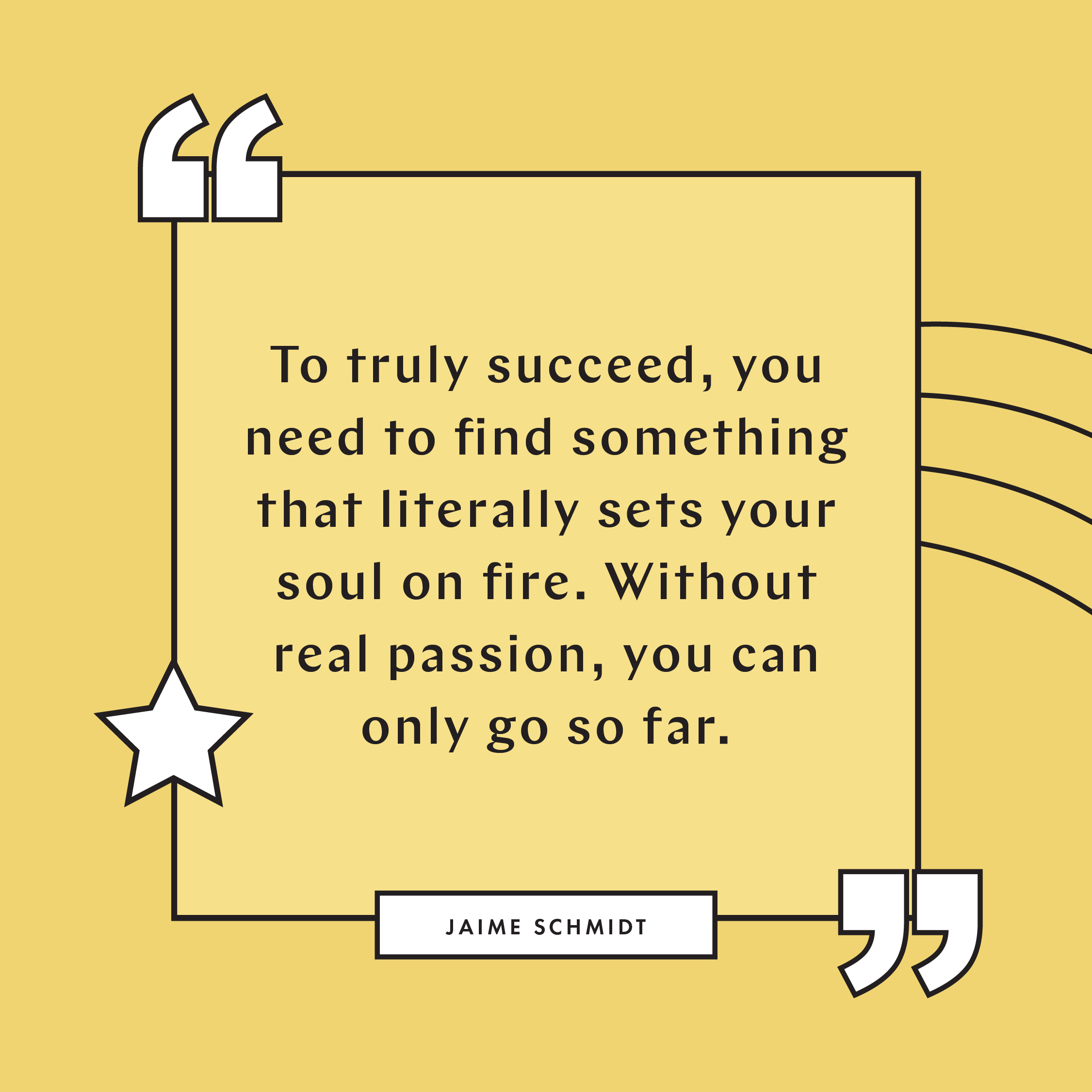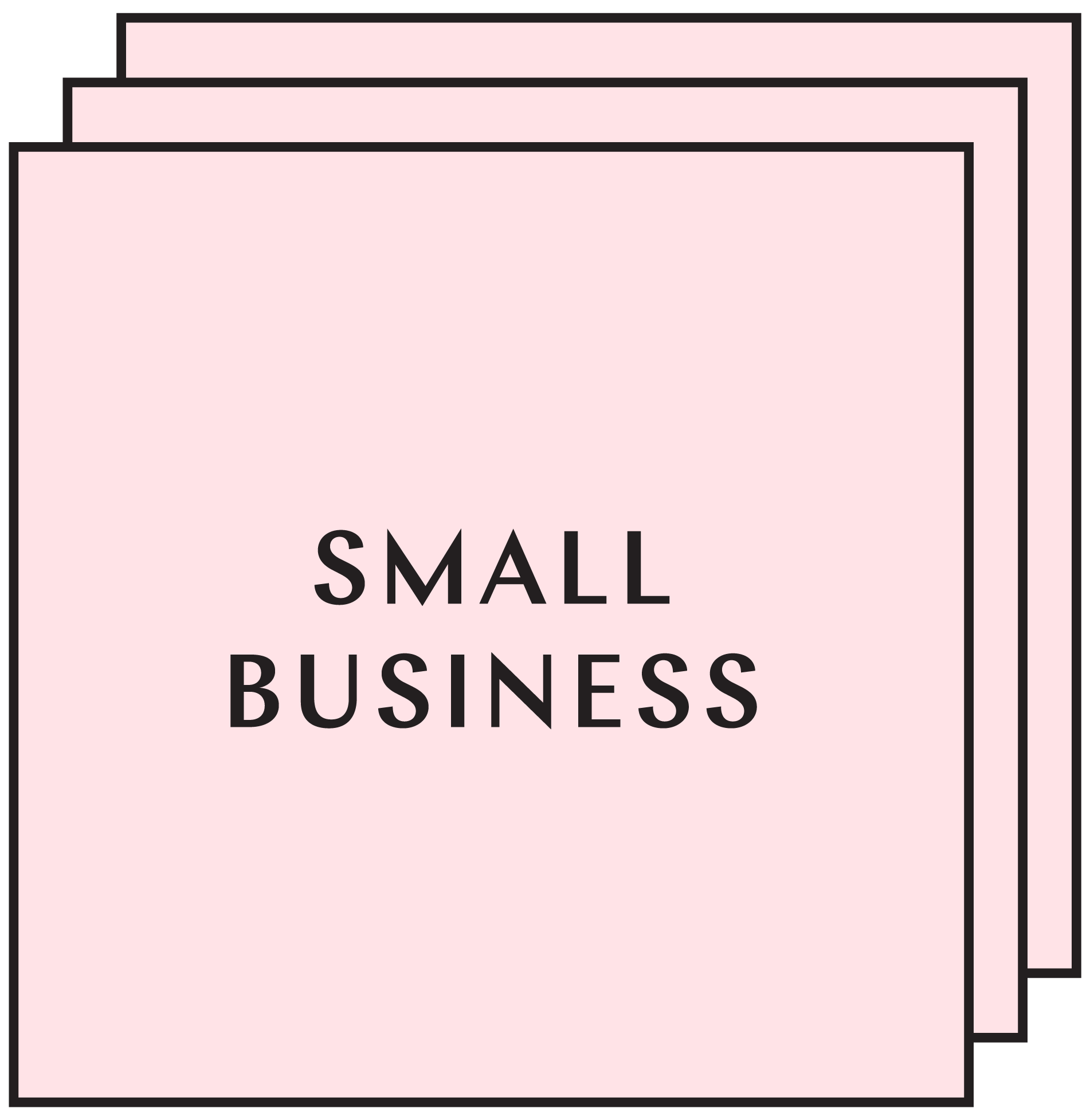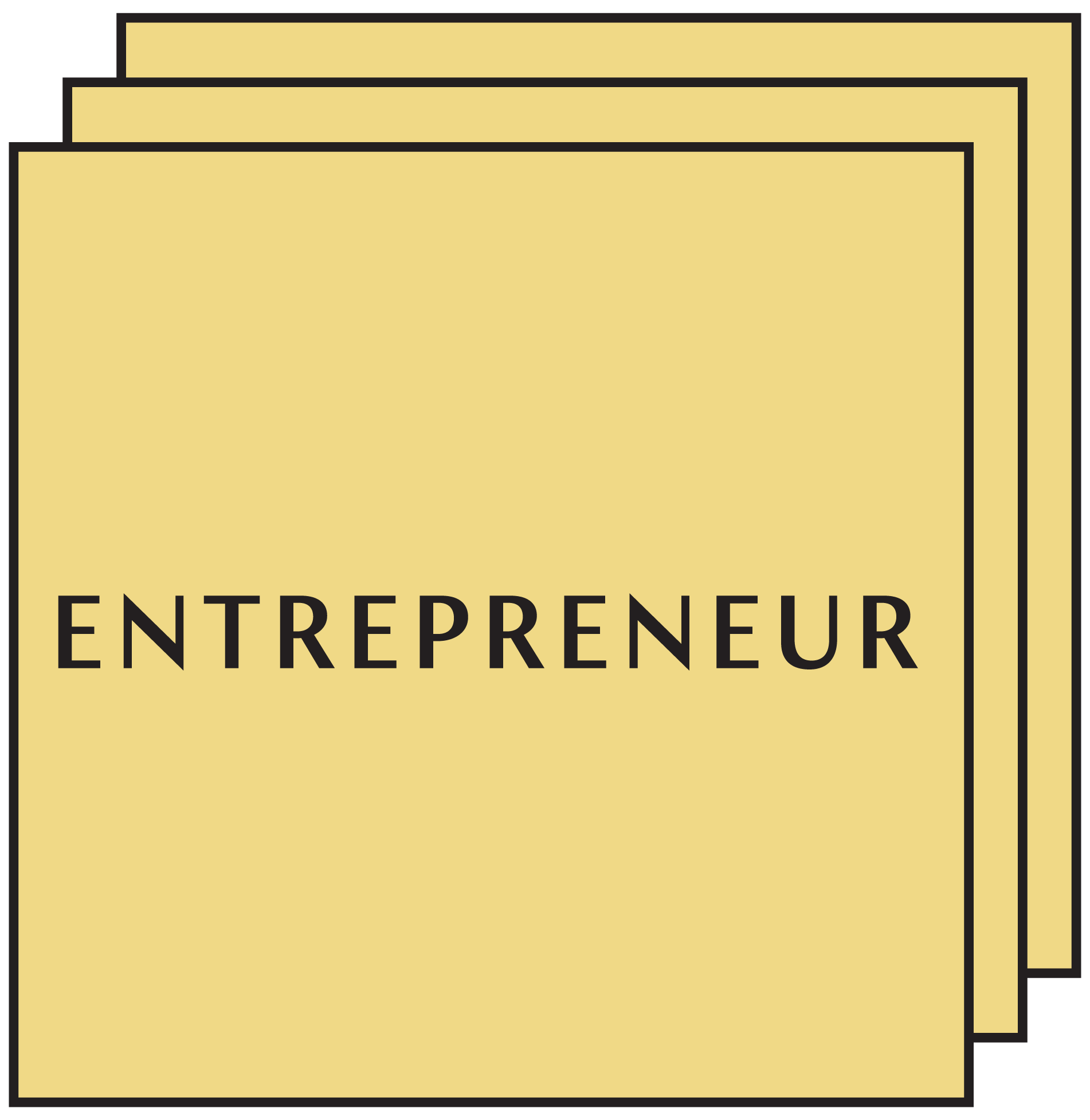Jamie Schmidt knows a thing or two about building a successful business.
Case in point: Less than 10 years after launching her eponymous natural skincare line Schmidt’s Naturals from her small kitchen in Portland, Oregon, it was acquired by the personal care powerhouse Unilever in 2017. Schmidt and her company really led the charge for the natural movement around personal care products.
But just because she sold doesn’t mean she has removed her entrepreneurial cap. Quite the contrary. After the phenomenal acquisition, Schmidt turned her attention to launching an inclusive investment firm, Color, which enables and empowers underrepresented female founders. And, more recently, she launched Supermaker, a media platform “that celebrates diverse, independent brands and modern workplace thinking.” Talk about paying it forward!
Here, Schmidt tells Create & Cultivate about deciding to sell Schmidt’s Naturals, navigating the challenges that come with balancing the creative and logistical sides of a business, and supporting women and non-binary founders.
CREATE & CULTIVATE: You are an incredibly successful entrepreneur both in terms of creativity and profitability, but we'd love to know, what does success mean to you?
JAIME SCHMIDT: Success is not something that you either achieve or you don’t. Success is about impact and, at the end of the day, we must decide for ourselves whether our actions have made the difference we aspire to.
When I think about my own life, I understand that I’ve “made it” in the sense that I am in a secure place with achievements that I am proud of. But, I know that I will never be done seeking success. That journey will be ongoing throughout my life.
While growing my brands Schmidt’s Naturals and Supermaker, I focus primarily on what’s right in front of me, taking things one step at a time. Success is feeling inspired every day in the knowledge that I have an impact on the world, no matter the magnitude.
When I see now that Schmidt’s changed an industry by bringing natural, healthy products to the mainstream, it feels like a great success. Today, my passion has evolved to inspire and support other entrepreneurs who are seeking their own interpretation of success. By supporting underrepresented entrepreneurs through my investment fund, Color, and changing the media landscape through my platform, Supermaker, all my businesses are built to enable impact. Rather than defining success for my fellow entrepreneurs, I instead see my value as being their biggest supporter, trusting their vision and supporting them by giving them resources to thrive.
You made the decision to sell your personal care business, Schmidt's Naturals, in 2017. How did you personally handle this big change? What was that process like for you? What advice can you share for others who might be in the same position?
When I sold my brand Schmidt’s Naturals to Unilever just seven years after growing it from my Portland, OR, kitchen into stores like Target, Costco, and Whole Foods, it was one of the most deliberated decisions of my life. While I was approached by many private equity and venture capital firms, plus some of the world’s biggest CPG companies, I knew that Unilever was the best choice, because they were also committed to my original mission of bringing the best natural personal care products to the greatest number of people.
I knew that in partnering with a conglomerate of over 400 brands, Schmidt’s would gain access to greater research and development capabilities, untapped global distribution, a rock-solid supply chain, and troves of consumer insight. While I’m still supporting and am very connected to the brand today, I now have more time to put towards my other causes.
If you’re in the position of considering an acquisition deal yourself, listen for signs that it could be time for the next chapter. Some might be more literal, like the need for greater capital investment or capabilities. Or, maybe you find yourself daydreaming about your next life phase. When I started Schmidt’s, I never imagined I’d sell it. But by the time the opportunity arose, it was obvious it was the best thing for the company and for me.
“If your heart isn’t in it, walk away. It’s never too late to change your mind, even if it means completely deviating from a career path or business idea that you spent years developing.”
When you hit a bump or hurdle in your career, how do you #FindNewRoads + switch gears to find success?
If your heart isn’t in it, walk away. It’s never too late to change your mind, even if it means completely deviating from a career path or business idea that you spent years developing. And if that means maintaining a random side gig for financial support to get you to your next stage, that’s okay, too.
Your new company Supermaker is a platform dedicated to celebrating unique businesses and supporting budding entrepreneurs. What motivated you to kickstart this company? Why? And what advice do you have for people launching a business today?
Supermaker is a media company with a conscious agenda focused on celebrating inclusive, disruptive, and independent brands. We are also host to progressive and relevant conversations around work and career development, including issues of political and social significance. Supermaker is committed to changing the homogenous and predictable landscape of business media.
My advice? If you’re launching a business today, know there will be no shortage of competition. To truly succeed, you need to find something that literally sets your soul on fire. Without real passion, you can only go so far.
You also need to be willing to take risks and step outside of your comfort zone. This often means saying yes to opportunities that might seem far fetched. Often times, your success as an entrepreneur is directly related to your tolerance for risk.
For many entrepreneurs, it can be challenging to balance their creativity with the business side. What is your best advice for mixing the two successfully? How did you manage the financials of your business in the early days? Why is this so important? Are there any apps or tips you can recommend?
As an entrepreneur, the struggle to balance it all just comes with the territory. Once your budget allows, you can start to make hires to take on some of the responsibilities you don’t enjoy, but until then you really have to own all of it.
I find it helpful to devote certain days or blocks of time to focus on specific tasks. This way, you can take comfort in knowing that no aspect of the business is being overlooked. It can also give you something to look forward to. For example, if you know that every Wednesday afternoon will be devoted to writing or product development or whatever it might be, you won’t feel so agitated by the less sexy stuff.
Don’t underestimate the importance of keeping your finances in order—the one thing I messed up on in the earliest years was mixing my personal and business money, and it took a lot of work to clean up for accurate bookkeeping.
Your company Supermaker is on a mission to create a better world. How do you create and maintain a company culture that supports that movement? Why is this mission important to you?
Supermaker works with an endless list of consultants, employees, agencies, and talented individuals who are all committed to the greater cause. In keeping these relationships healthy and satisfying for all, we prioritize inclusivity, recognition, and personal growth. We hire outside of our circle of sameness and crave diverse points of view. It’s the only way to learn and grow.
I’m most interested in giving people an open playing field with all the tools they need to succeed. This gives people a great degree of excitement and passion to follow their own “why.” Then, as a founder, it’s my job to mindfully guide that sense of purpose towards the company’s end goal, so we’re all set up to thrive.
My personal “why” all goes back to impact. And when you’re thinking about impact, you can’t forget about those closest to you, your own team.
My belief is that the success of a company is directly tied to the culture it builds.
You have a lot on your plate with Supermaker so we'd love to know, what inspires you? What motivates you to keep going even on your most challenging days? Why?
I have a number of projects and businesses that require my attention. I have six registered companies, actually, on top of those that I invest in. Yes, you could say my plate is full! I love being busy and pulled in many directions. I stay driven and inspired by reminding myself that I am here because I chose to be. I wanted this.
Before becoming an entrepreneur, I spent many years soul searching and trying to find fulfillment in my work. In building my own businesses, I’ve finally found my purpose.
What do you wish people knew about being an entrepreneur that you didn't?
Mistakes are just research and development. They aren’t a sign that you are failing or that you don’t know what you are doing. Every “setback” is actually a stepping stone towards better understanding yourself and your business.
“Mistakes are just research and development. They aren’t a sign that you are failing or that you don’t know what you are doing.”
What is the best advice you’ve received? Or your favorite piece of #realtalk?
Trust your gut and follow your heart. When faced with a big decision, pay attention to how your mind and your body are responding to the idea—that will tell you everything you need to know.
You started an investment fund dedicated to supporting women and non-binary founders. What do you look for when choosing companies to invest in? Why?
My investment fund Color was created, alongside my husband and business partner Chris Cantino, because we noted a lack of transparency, diversity, and social mission amongst institutional VC’s and private equity firms. We believe that even small investment companies can make a big impact by investing directly in companies founded by diverse, underrepresented entrepreneurs.
Color invests in early-stage companies—typically seed to series A—and specializes in the consumer product industry, retail and direct to consumer marketing, brand positioning, and growth strategy.
Photographer: Jenna Peffley
Hair: Styled by OGXpert & Celebrity Hairstylist Jillian Halouska
VIEW THE FULL CREATE & CULTIVATE 100 ENTREPRENEUR LIST HERE.


